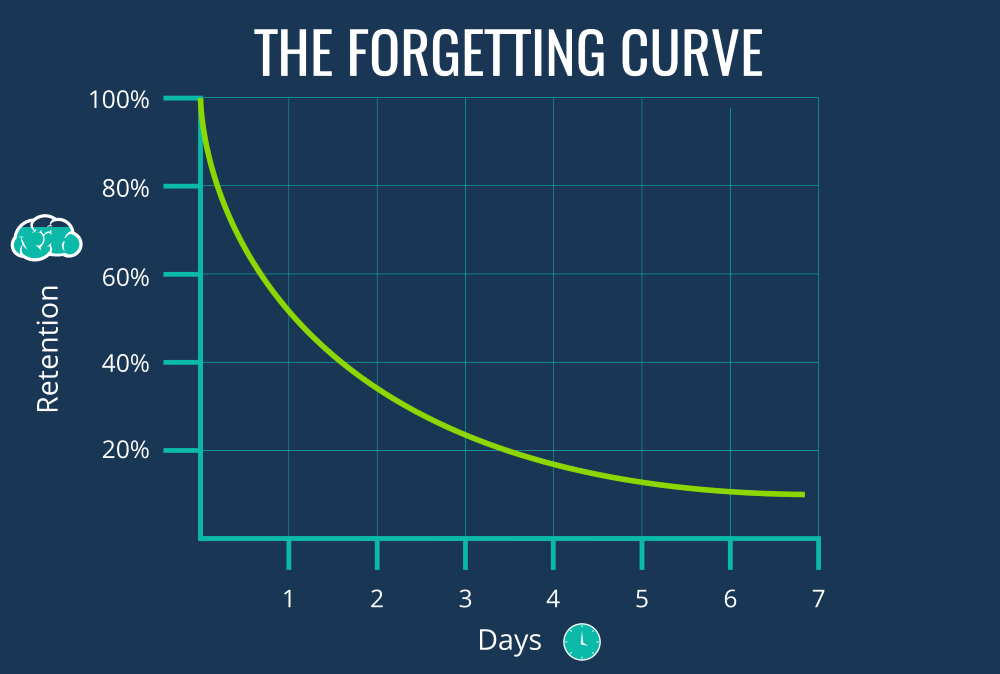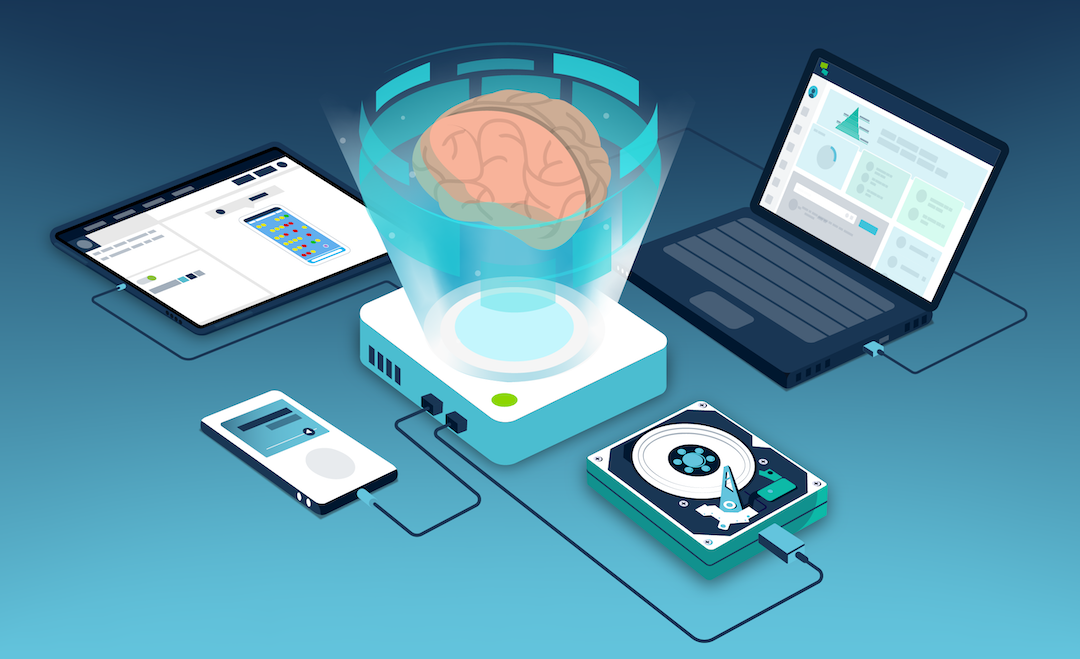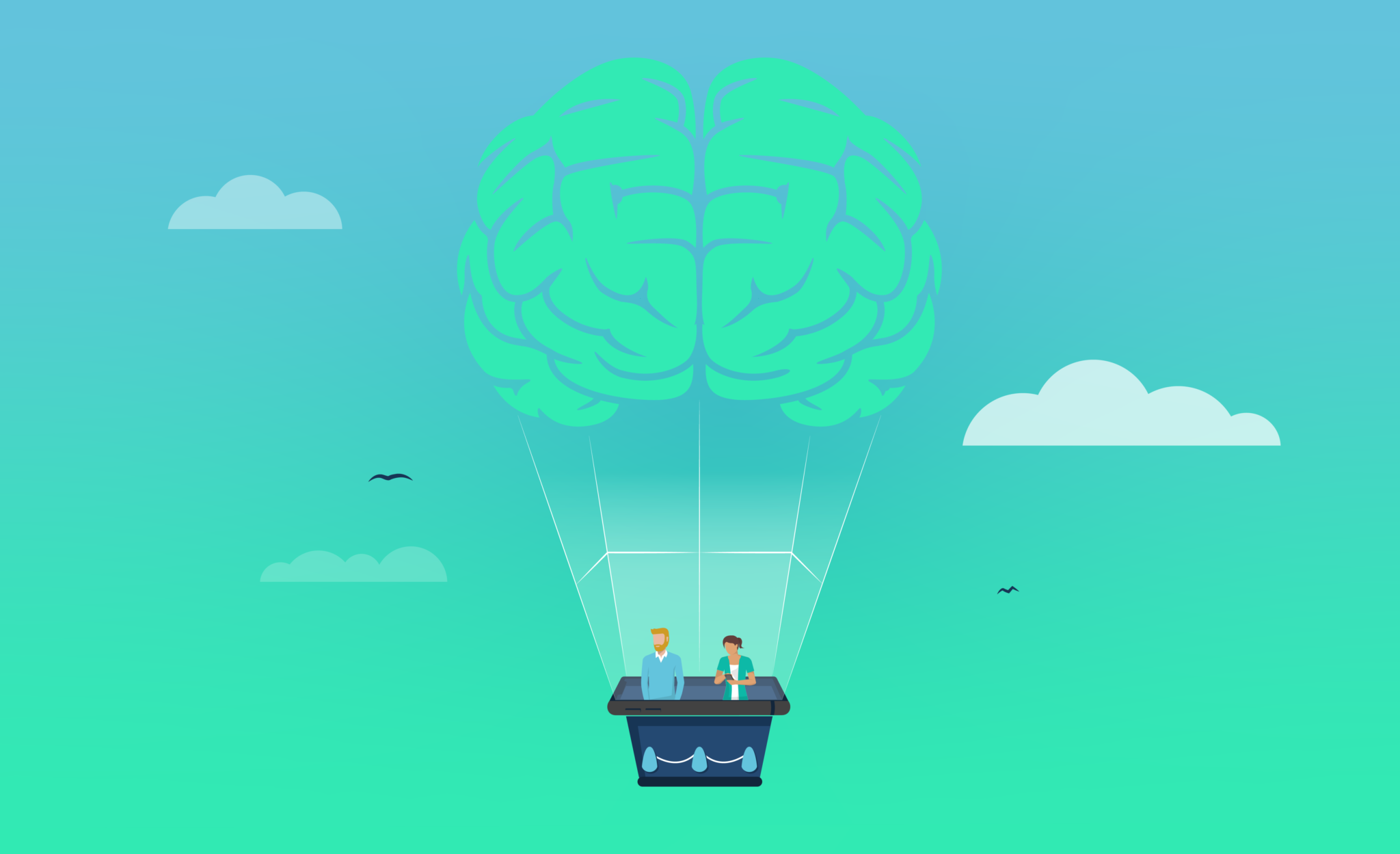 Have you ever entered a room only to forget why? Or completely forgot where you put your keys? If we knew more about the science behind forgetfulness, then maybe we could keep these frustrating occurrences down to a minimum!
Have you ever entered a room only to forget why? Or completely forgot where you put your keys? If we knew more about the science behind forgetfulness, then maybe we could keep these frustrating occurrences down to a minimum!
Comprehension aside, long-term memory is the most important element in transforming information into knowledge. In order to make new information stick, we need our long-term memory to be robust and healthy.
We’ll cover how to strengthen your long-term memory later (if we remember to). But, firstly, what’s the science behind memory, forgetfulness and recalling?
How Are Memories Made?
Your brain categorizes memories into three different areas:
1. Sensory Memory
As our senses are always receptive to what’s happening around us, it would be impractical to store split-second sights, sounds and smells in our long-term memory. Therefore, sensory memories are stored in our temporal lobe. It’s then passed to the short-term memory…
2. Short-term Memory
Cognitive psychologists believe short-term memory covers the most recent 15-30 seconds of your experience only. In fact, you are using your short-term memory right now. If you weren’t, you wouldn’t be able to form a relation between this sentence and the previous one. Short-term memory is stored in the prefrontal lobe.
3. Long-term Memory
Long-term memory is where we need our learning to be stored. When we revise or recall information, it’s transferred from the short-term memory to the long-term memory via the hippocampus. When the info is recalled over and over again, the hippocampus is no longer needed. This is when the cortex takes over and produces what we know as a memory.
Why Do We Forget?
The reasons as to why we forget things differ. Here are the three most common explanations why we can never remember where we parked the car or indeed, recall learned content:
Retrieval Failure:
Retrieval failure is the inability to recall a memory due to a missing catalyst present at the time the memory was created. For example, let’s say you can’t remember the name of certain popstar, but on hearing one of their songs, their name is instantly flung back into your consciousness. This is an example of recalling from a catalyst.
Interference:
This happens when nods to comparable memories get mixed up due to similarities. When recalled, the information is therefore jumbled up. A good example of this would be when a coffee barista gives you a decaf as that’s what the last customer ordered (first world problems!).
Ineffective Coding
Otherwise known as ‘failure to store’, ineffective coding, is where you simply fail to bank information in your long-term memory. Why does this happen? It’s usually down to not paying enough attention at the time! It’s like when someone introduces themselves to you, and you’re so busy with getting the handshake right that you don’t listen out for their name!
The Forgetting Curve:
Hermann Ebbinghaus was a 19th century German psychologist who studied memory. Amongst other research, he studied his own recollection ability by memorising nonsensical syllables.
Ebbinghaus collated all the data from his spaced learning experiments and gave us his famous Forgetting Curve. He concluded that we forget an average of 90% of what we learn in the first month. As you can see, the amount we forget is truly staggering!

What Can Help Us to Remember?
A study conducted by The University of Toronto found that forgetfulness is a sign of intelligence. Professor Blake Richards argues that it’s important we forget older stuff lodged in the back of our memory to know what’s happening right now, in the present moment. Yet conflictingly, when a colleague forgets important information during a meeting, we don’t automatically label them uber-brainy!
So what can help us strengthen our long-term memory? Hey, we remembered after all!
First, here’s what Juliette has to say:
Knowledge Reinforcement:
Reinforcement is a fantastic remedy in the fight against the Forgetting Curve. Everytime knowledge is reinforced, it locates the same neurons in the hippocampus. This process of locating creates a neural pathway which becomes thicker and easier to access every time it’s revisited. This is why revision works, kids!
On average, microlearning lasts between 1-5 minutes. Its ease of completion is just one reason it’s a great way to reinforce knowledge.
Other Memory Boosters:
The hippocampus is where the memory is stored. Here are five other ways to improve the operation of this vitally important part of your neuroanatomy:
1. Exercise
When you exercise, you actually increase the size of your hippocampus. This is particularly true when you practice aerobic exercises such as swimming, running or tennis.
2. Sleep
When you sleep, your brain processes all the memories that have happened that day. A lack of sleep can lead to cognitive impairment, lack of focus and increased stress, all things that negatively affect your memory.
3. Diet
According to Harvard, polyunsaturated fats may be your saviour when it comes to preserving memory. They go on to say that the Mediterranian diet is ideal for a diet high in healthy unsaturated fats. This includes foods such as fish, fruits, vegetables and wholegrains.
4. Mindfulness
Research from the EOC Institute suggests that meditation stimulates memory associated brain regions such as the hippocampus. Practising mindful techniques like mediation and deep breathing can greatly reduce stress. Stress is a big contributor to ageing characteristics such as memory loss.
5. Brain Training
Some studies have shown that brain training games like Sudoku, crosswords and a whole host of specially designed brain training apps can help improve your cognitive skills. Marcel Danesci, PHD, author of Extreme Brain Workout, says that ‘Playing them activates synapsys in the whole brain, including the memory areas.’
Final Word:
The good news is momentary absentmindedness is a natural part of life. The next time you forget your login password you can blame it on science!
When it comes to learning, your ability to store and recollect needs to be on top form. Luckily, there are a few things your learners can do to keep their hippocampi in good shape.
With aerobic exercise, quality sleep, a diet rich in unsaturated fats, mindfulness and brain training, your learners will stand in good stead for learning. What’s most effective, however, is knowledge reinforcement.
Brain science plays a huge part in all aspects of working life, including behaviour change.
Our guide ‘Behaviour Change in the Workplace Using a Microlearning App’ takes you through the educational psychology and pioneering cognitive research that drives behaviour change. This hugely detailed and extensive guide is free for you to download now!








